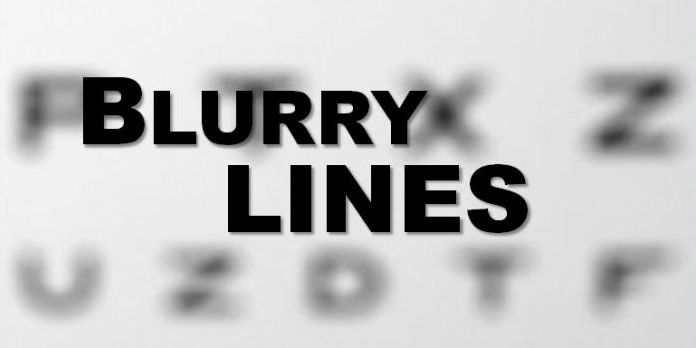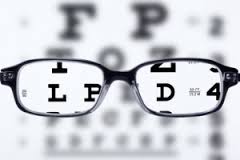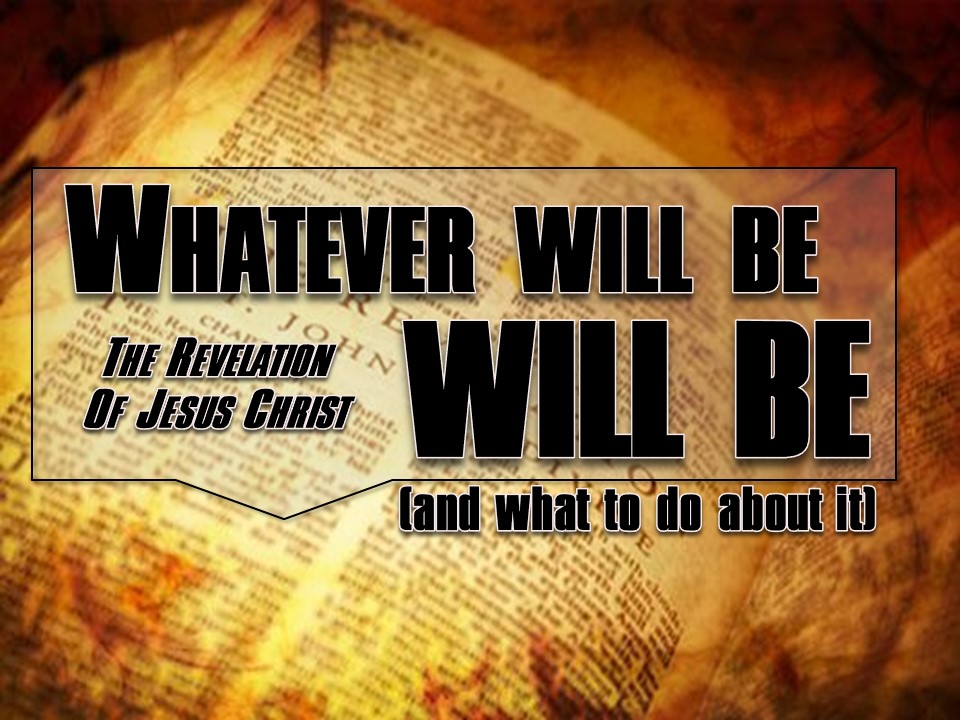 When I visit the eye doctor, I am always a little nervous. I know that I am destined for failure.
When I visit the eye doctor, I am always a little nervous. I know that I am destined for failure.
I am convinced that I can waltz in there and read every line on the chart. However, also I know that the wily doctor is going to ask me a question: “Are you wearing contacts?”
Bummer. I’ve been busted.
Obediently, I shuffle back out into the other room, extricate my trusty contacts, and allow myself to be led back into the . . .[roll scary music] . . . examination chamber.
Falling into the chair, I am commanded by the white-coated interrogator to read the letters on the chart.
“Huh? What chart?”
“The one on the wall.”
“Oh, sorry. I thought it was a window.”
Exasperated, the doc reaches for a contraption that is hanging nearby and slams it onto my face. “There, now can you see it?”
“Yeah, it looks like a big E.”
Now we’re getting somewhere. The doctor spends the next ten minutes flipping switches while I am transported back to the rigors of kindergarten when I was subjected to reading letters on the wall. Surely there is a more mature way to squander an afternoon.
When we finally conclude this juvenile exercise, he scribbles out a new prescription and I retreat to the next room to retrieve my contacts. As I manually regain 20/20 vision, I have to wonder. Why do I get nervous about visiting the eye doctor?
Then it hits me. I know that he is going to ask me questions that I cannot answer. I’ve seen the chart enough to have the first line memorized (if they ever replace the E with an F, I’m sunk). Beyond that, however, it’s guesswork. I may give it my best shot, but I am sure to get some of them wrong. It’s not that I do not know the letters; I just cannot see them. When I make it up, the insensitive doc destroys my frail ego by telling me I am wrong. The audacity!
But he’s right. There is a right and a wrong answer. I just can’t see it. Whether or not I know which is which makes no difference. The ophthalmologist-turned-judge requires me, under threat of announcing to the world my advancing age through dispensing a stronger prescription, to give the correct answer. No excuses. It’s either a P or an R. It’s not debatable. It does not matter if it’s blurry. I need to pick the right one, or I am wrong.
How can the concept of right and wrong be so clear in the eye doctor’s office yet so fuzzy out in the real world, where the consequences are much greater than mistaking an N for an M?
 This is nothing new. The Devil has been playing this game almost since the creation of man. He approached Eve with a simple question. “Has God indeed said, ‘You shall not eat of every tree of the garden?’” (Genesis 3:1 NKJV). He then followed up his question with a view of the truth that seemed tantalizing for Eve. Maybe God is not really all that good. Maybe He is holding back an opportunity for you to realize your potential. Go ahead, have a bite. Read the lines according to what you want them to say, not what they really say. Then you will be happy.
This is nothing new. The Devil has been playing this game almost since the creation of man. He approached Eve with a simple question. “Has God indeed said, ‘You shall not eat of every tree of the garden?’” (Genesis 3:1 NKJV). He then followed up his question with a view of the truth that seemed tantalizing for Eve. Maybe God is not really all that good. Maybe He is holding back an opportunity for you to realize your potential. Go ahead, have a bite. Read the lines according to what you want them to say, not what they really say. Then you will be happy.
Recently the city of Houston, Texas, issued a subpoena that required a select group of pastors to turn over all sermons regarding homosexuality, gender identity, or Annise Parker, who is Houston’s first openly lesbian mayor. This was in response to a lawsuit against a recently-passed Houston anti-discrimination ordinance that elevated the “rights” of the LGBT community.
There are at least two issues at stake here. First is that the lifestyle of lesbianism has become so accepted that it is flaunted by a public official. Second is that government leaders would surmise they have any oversight whatsoever over what a pastor proclaims from his pulpit.
How could we have come so far?
The answer can be found no further than the examination room in your local eye doctor’s office. It would be an incompetent doctor who says, “Well, I think that is an A. But if you see it as a B, who am I to tell you any differently?”
Would you return to such a spineless doctor? Would you trust him with your precious eyesight?
I am afraid, however, that while many Christians will fight tooth and nail to see truth recognized on a national level, it is quite different in our individual lives. The truth of God’s Word has become “blurry.” Rather than simple obedience to God’s commands, we tend to interpret the Bible according to how it will please us. To put it another way, if the letters on the chart don’t say what I want them to say, I make up my own. If you tell me I’m wrong, you need to stop judging me.
Kudos to the pastors in Houston who will take a stand for the truth, regardless of the cost. Shame on the Christians who reject God’s commands in favor of their own happiness.



